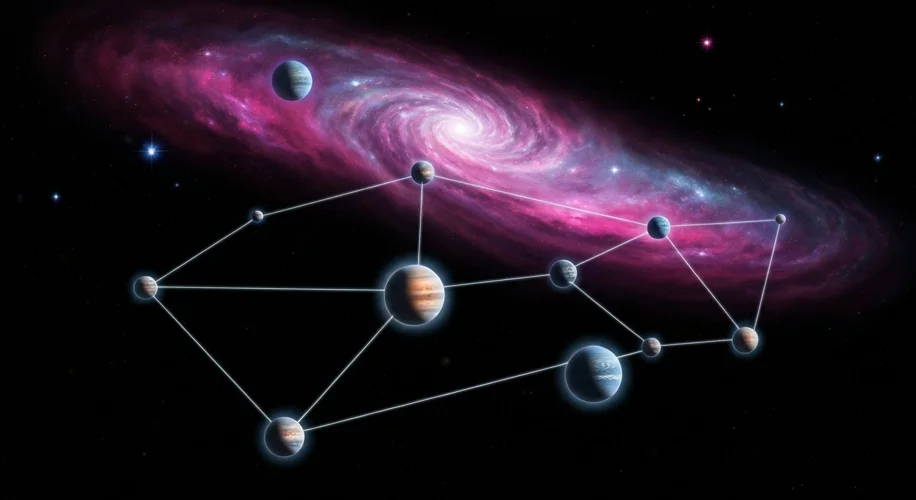Hey everyone! Simone here. Today, I want to dive into a fascinating question that touches on the vastness of space and the very fabric of time: could we ever build a truly unified galactic empire?
It sounds like something straight out of science fiction, right? But when we start thinking about traveling across galaxies, we bump up against some pretty mind-bending physics, thanks to Albert Einstein’s theories of relativity.
The ‘Now’ Problem Across the Cosmos
One of the biggest hurdles is the concept of a synchronized ‘now.’ In our everyday lives, we take for granted that if it’s 3 PM here, it’s also 3 PM on the other side of town. But as soon as we start talking about vast distances, like those between stars or even galaxies, this simple notion breaks down. According to Einstein’s special relativity, time is not absolute. It’s relative to your frame of reference, specifically how fast you’re moving.
Imagine trying to have a galactic council meeting where everyone agrees on the current time. If one planet is zipping around its star at a different speed than another, or if a communication signal has to travel across immense distances, what is ‘now’ for one might be slightly in the past or future for another. This time dilation effect means that maintaining a universal, simultaneous ‘now’ across a galactic empire would be incredibly challenging, if not impossible, with our current understanding of physics.
Wormholes: A Shortcut or a Time Warp?
So, what about those sci-fi staples like wormholes? These theoretical tunnels through spacetime could, in principle, offer shortcuts across the vastness of the universe. But here’s where it gets tricky. If wormholes allow for faster-than-light travel (or at least, travel that appears faster than light by bending spacetime), they could potentially exacerbate time dilation issues, not solve them.
Think about it: if you could travel through a wormhole from one end of the galaxy to another and emerge almost instantaneously from your perspective, the people you left behind would have aged significantly more. This is often referred to as the twin paradox, applied on a much grander scale. So, while wormholes might make the journey itself shorter, the temporal discrepancies between different parts of your empire could become even more pronounced. It might mean that your ‘now’ in one star system is decades or even centuries removed from another.
The Everyday Impact of Relativity
While we’re not exactly planning interstellar commutes yet, the principles of relativity aren’t just theoretical curiosities. They’re crucial for technologies we use every day. For instance, the Global Positioning System (GPS) wouldn’t work accurately without accounting for both special and general relativity (time dilation due to speed and gravity). Satellites are moving fast and are in a weaker gravitational field than us on Earth, so their clocks tick at a slightly different rate. Without these corrections, your GPS would be off by several miles each day!
Looking Ahead
So, building a galactic empire with a perfectly synchronized ‘now’ presents some serious scientific hurdles. It forces us to think about time and space in ways that are fundamentally different from our everyday experiences. While we can dream of interstellar civilizations, the practicalities of spacetime might mean that true, instantaneous galactic unity remains a fascinating concept for the future, perhaps one that requires physics we haven’t even discovered yet.
It’s amazing how the universe’s rules can challenge even our grandest ambitions!

